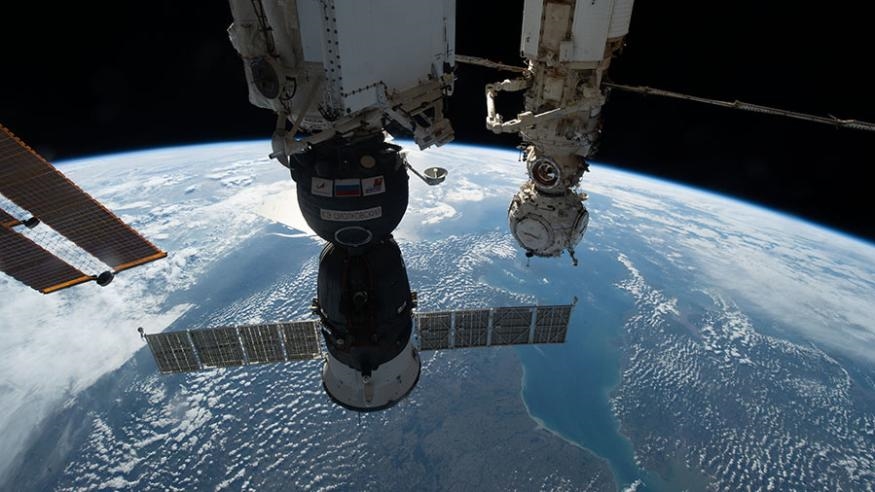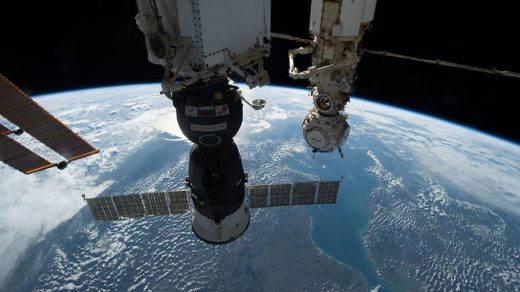A second Russian spacecraft docked at the ISS is leaking coolant
Radiator leak from Russian ISS module leaves spacewalkers cooling their heels

Russia’s Soyuz MS-22 spacecraft, currently docked at the International Space Station (ISS), began leaking coolant Wednesday evening. According to Russia’s space agency Roscosmos, the instrument and assembly compartment’s outer skin was damaged. Fortunately, the crew is safe, and they conducted normal operations afterward. NASA said in a blog post that “the external radiator cooling loop of the Soyuz is the suspected leak source.”
Cosmonauts Sergey Prokopyev and Dmitry Petelin were already in their suits, preparing for a nearly seven-hour spacewalk, when the crew noticed low-pressure readings. The cosmonauts postponed their walk indefinitely and weren’t exposed to the coolant. “Roscosmos is closely monitoring Soyuz spacecraft temperatures, which remain within acceptable limits,” NASA said. “NASA and Roscosmos continue to coordinate external imagery and inspection plans to aid in evaluating the external leak location.” The crew plans to investigate further using the station’s robotic arm.
The Soyuz MS-22 spacecraft launched from Kazakhstan’s Baikonur Cosmodrome on September 21st, carrying the two cosmonauts and NASA astronaut Frank Rubio. The Russian space agency added that “a decision will be made” about the cosmonauts’ future aboard the ISS. A spacewalk scheduled for Dec. 21 is postponed indefinitely as the investigation continues.

Russia’s war in Ukraine has complicated (to say the least) the relationship between NASA and Roscosmos. Earlier this year, Russia said it would pull out of the ISS after 2024 and focus on launching its own space station. Although removing Russia from the ISS would throw a tremendous wrench into the program, the US reportedly had contingency plans even before the invasion.
(26)


